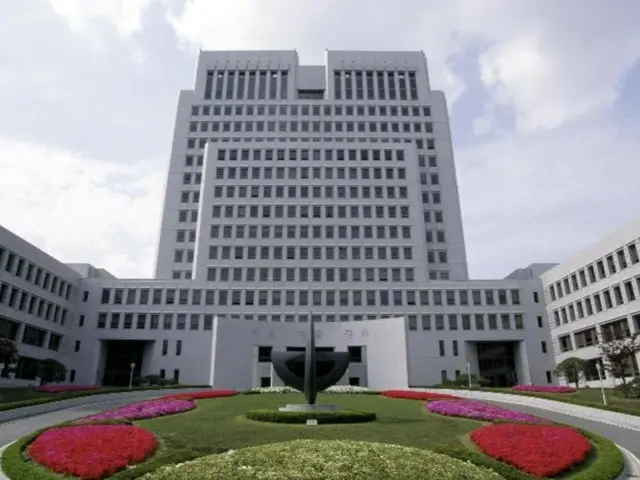) on the 26th of last month overturned the second-instance judgment that imposed a fine of 10 million won (approximately 1.1 million yen) and sent the case back to the Seoul High Court. The statement states that the decision was disposed of and remanded "for the purpose of innocence," and the same will be done in the future.
It is highly likely that he will be found not guilty at the high court. Japanese and Korean media reported, ``Concerns about the suppression of 'academic freedom,' such as research into the history of Japan and Korea, have been dispelled for the time being.'' (Japan Mainichi Shimbun)
It is a belated lesson that the prosecutors have delved into the academic field and confirmed the common sense that courts should not make decisions that jump on the bandwagon.'' (Korea, Chosun Ilbo)
Ru. In 2013, Ms. Park published her book ``Comfort Women of the Empire,'' which negatively discussed the forced abduction of official comfort women by the Japanese military. In her book, she defines the comfort women issue as a human rights violation against women under imperialism.
On the other hand, he wrote, ``The state violence of ``forcible recruitment'' has never been committed against Korean comfort women,'' and stated that comfort women and the Japanese military at the time had a ``comradely relationship.'' former comfort women
In June 2014, a criminal complaint was filed against Park for damaging her reputation as a result of the book, and in November 2015, prosecutors ordered Park to be indicted without detention. In January 2017, the Seoul Eastern District Court, the court of first instance, ruled that ``the social evaluation of former comfort women should be
There was no intention to drop the weapon,'' he said, and handed down a not guilty verdict. However, in October of the same year, the Seoul High Court, the second trial court, overturned the first trial's acquittal on the grounds that "the former comfort women were defamed by presenting false facts."
abandoned and sentenced to a fine. The expressions in the book are based on the ``Coomaraswamy Report,'' which was adopted by the United Nations Human Rights Committee in 1996 and clearly states that comfort women are ``sexual slaves'' who were forcibly taken away by the former Japanese military.
was judged to be "false". Park and the prosecution each appealed. On the 26th of last month, the Supreme Court overturned the second instance judgment and sent the case back to the Seoul High Court. The Supreme Court stated, ``The defendant's expressions that the second trial found guilty were
It is appropriate to evaluate this as an expression of an academic assertion or opinion, and it is difficult to regard it as a ``representation of facts'' that should be punished for defamation.'' The remand was based on ``innocent intent.''
In response, Park said, ``The ruling was fundamentally about freedom of thought, which is the freedom to express ideas that differ from those of the state.There were a lot of misunderstandings about my book.
The book examines the ideas and arguments of support groups regarding how to resolve the comfort women issue. I would like to thank the judges for issuing the correct sentence."
Regarding this ruling, Kyodo News said, ``Concerns that free academic debate on historical issues between Japan and South Korea will be curtailed within South Korea have been dispelled.
It looks like it's going to happen.'' The Mainichi Shimbun also reported that after Park was sentenced to a fine at the Seoul High Court in 2017, more than 100 Japanese and South Korean researchers issued a statement of protest, saying, ``Please ensure your safety.''
"In order to preserve the country's history, we will have to follow only the historical understanding recognized as correct by the mainstream domestic group." ``The South Korean Supreme Court has stated that ``the evaluation of academic expressions is
``In principle, this should be done through a process of public debate and criticism, rather than through criminal punishment,'' which can be said to accept this argument.''
Furthermore, the Mainichi Shimbun said, ``Changes in the situation in which the activities of civil society groups supporting former comfort women were treated as 'sanctuary' may influence the Supreme Court's decision.
It is possible that he gave it to them." At the time of the first and second trials, groups such as the former comfort women support group ``Solidarity for Justice and Remembrance'' had a strong presence in criticizing Japan. However, in 2020, the organization was accused of misappropriating donations.
The confusion was discovered. The move drew criticism from the South Korean public and led to a decline in interest in support for comfort women. President Yoon Seo-gyul, who took office last May, has promised that the comfort women issue will be “finally and irreversibly resolved.”
Japan is promoting the normalization of the 2015 Japan-South Korea agreement that confirmed that Furthermore, it took nine years from the time the former comfort women filed their criminal charges and six years from the second instance judgment before the Supreme Court issued its decision.
Ta. The Korean newspaper Chosun Ilbo pointed out this point, arguing in an editorial on the 27th that ``we should examine why it took so long.'' The paper said, ``Grand Justice Roh Jeong-hee (chief referee) who was in charge of the case
) took over the case upon the retirement of his predecessor in August 2018, and handed down the verdict five years and two months later. Mr. Roh, who was appointed by former President Moon Jae-in, is a member of the left-wing and progressive Uri Law Study Group.
He has been praised for making decisions that are in line with the wishes of the appointing authority." ``This judgment was also a case that could have been handed down during former President Moon's term.''
"We cannot escape criticism that the decision was kept postponed because it effectively abolished the women's agreement and contradicted the anti-Japanese policy of the Moon administration."
2023/11/01 11:09 KST
Copyrights(C)wowkorea.jp 5

